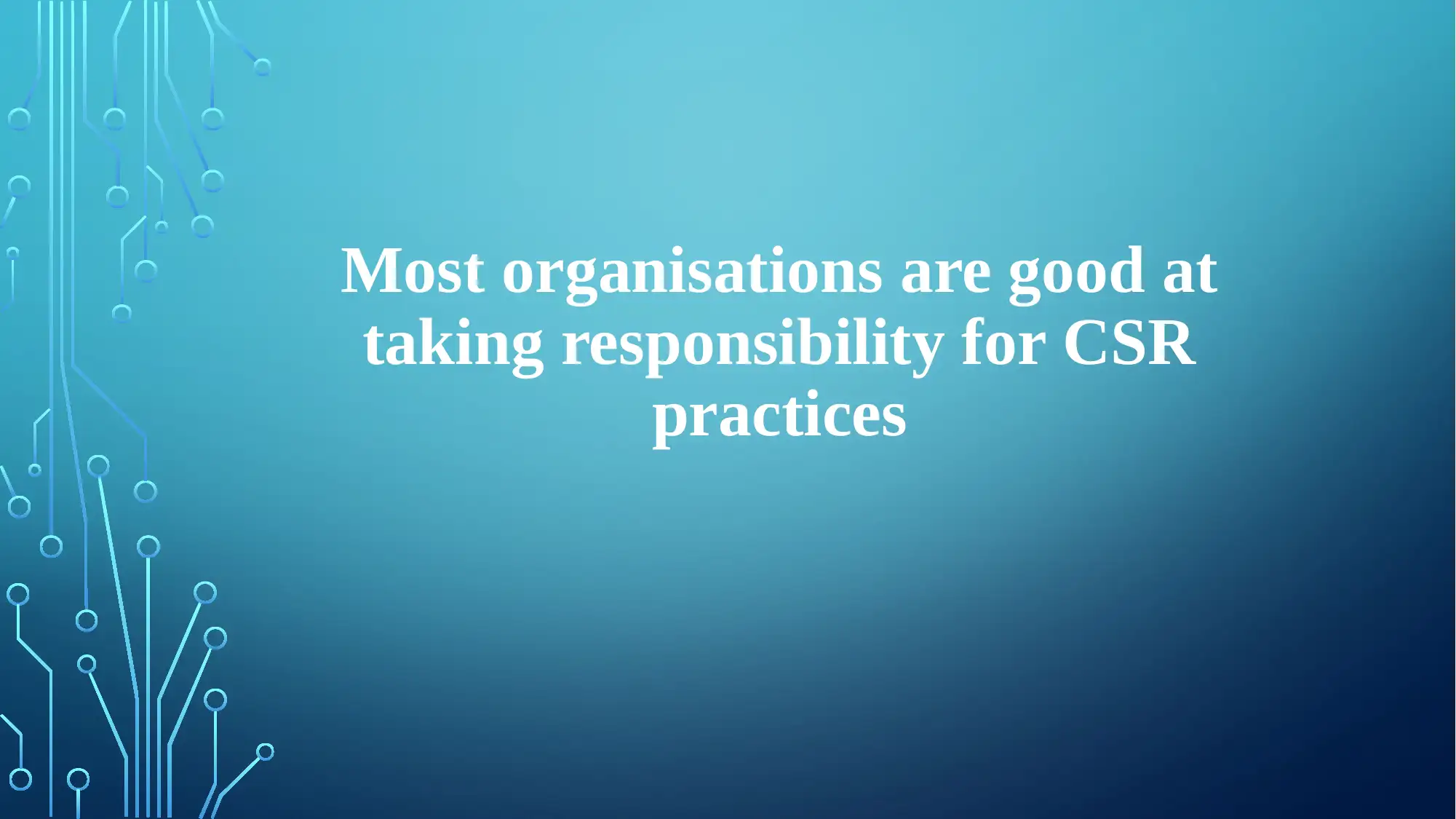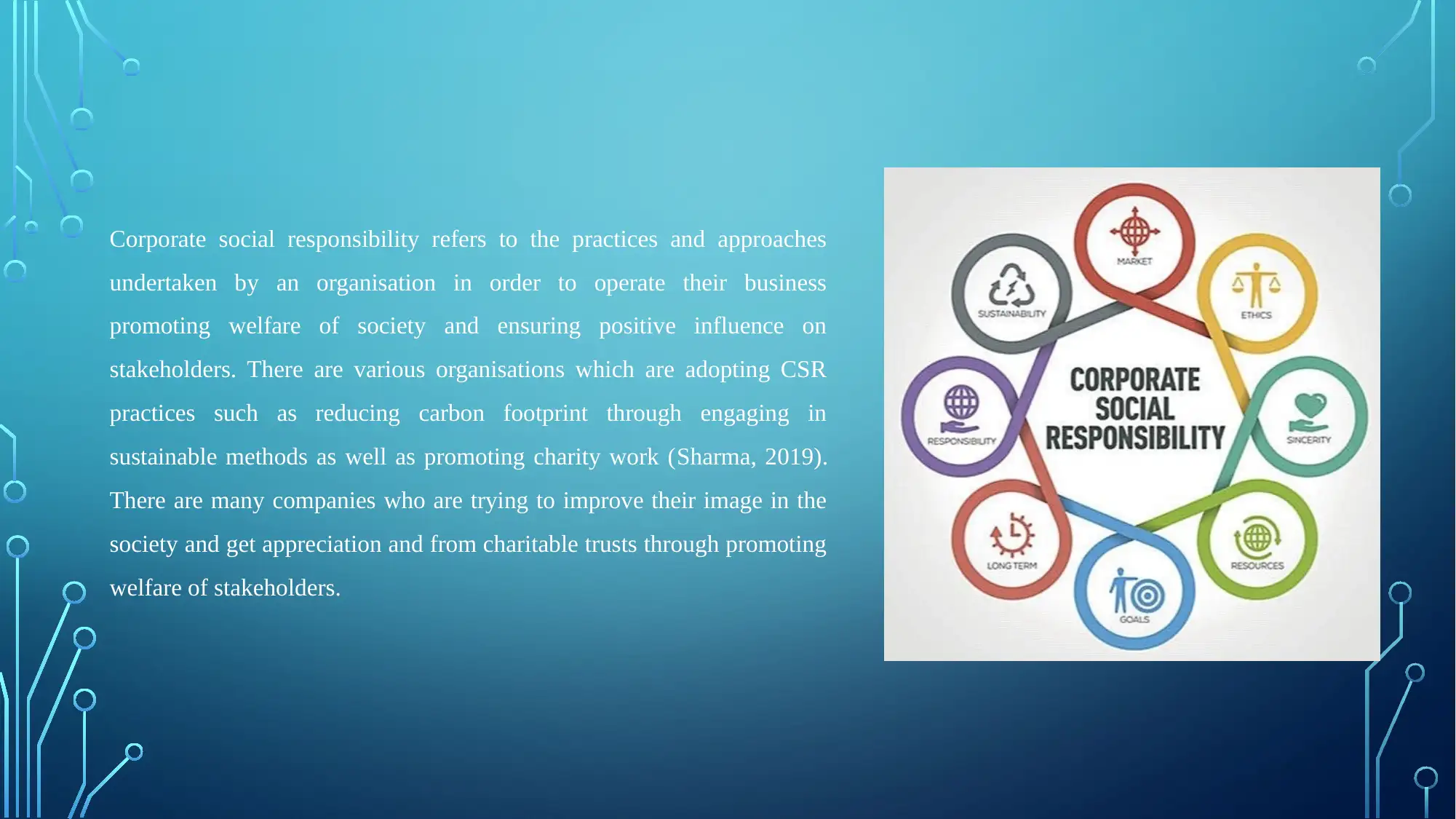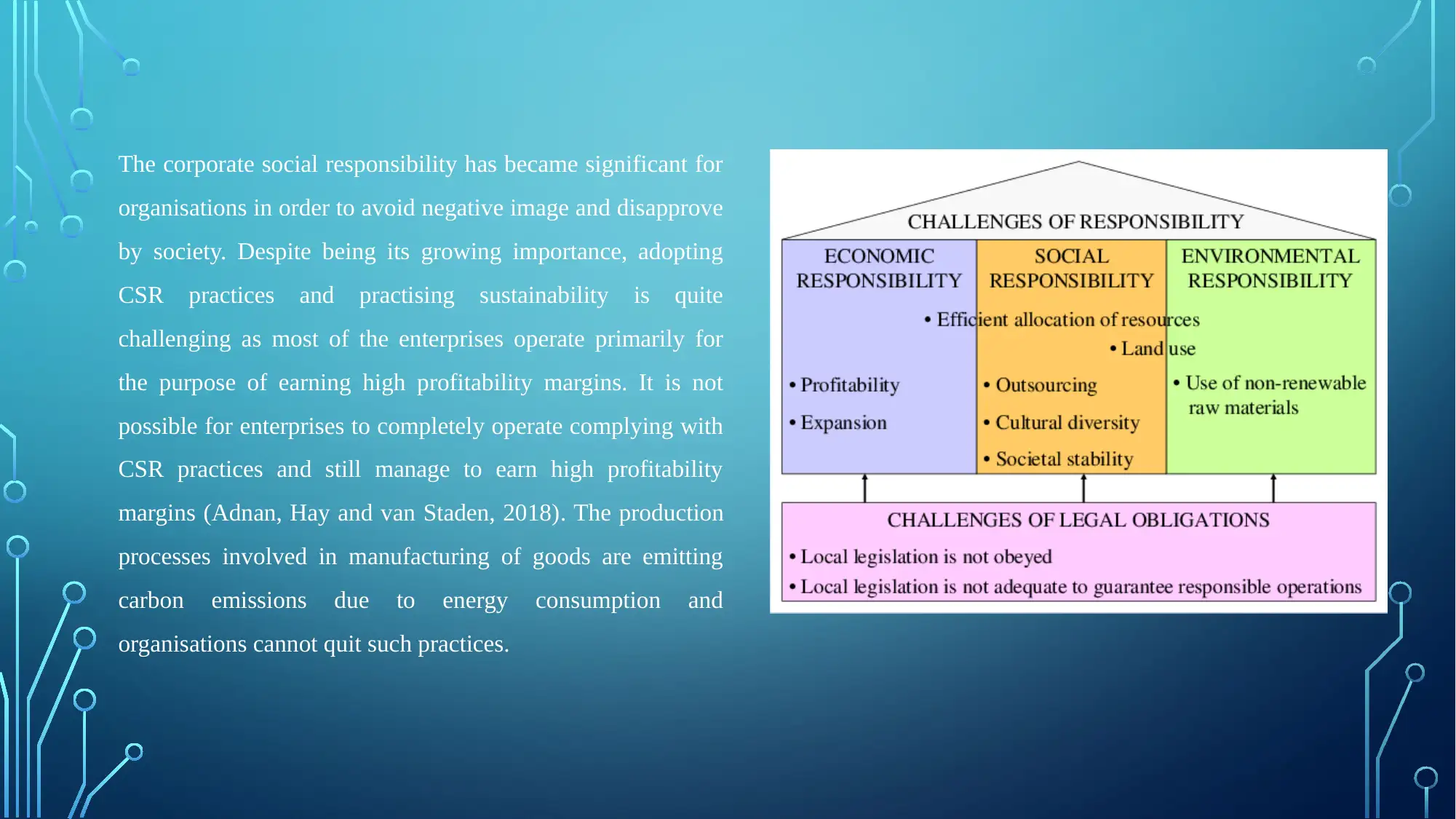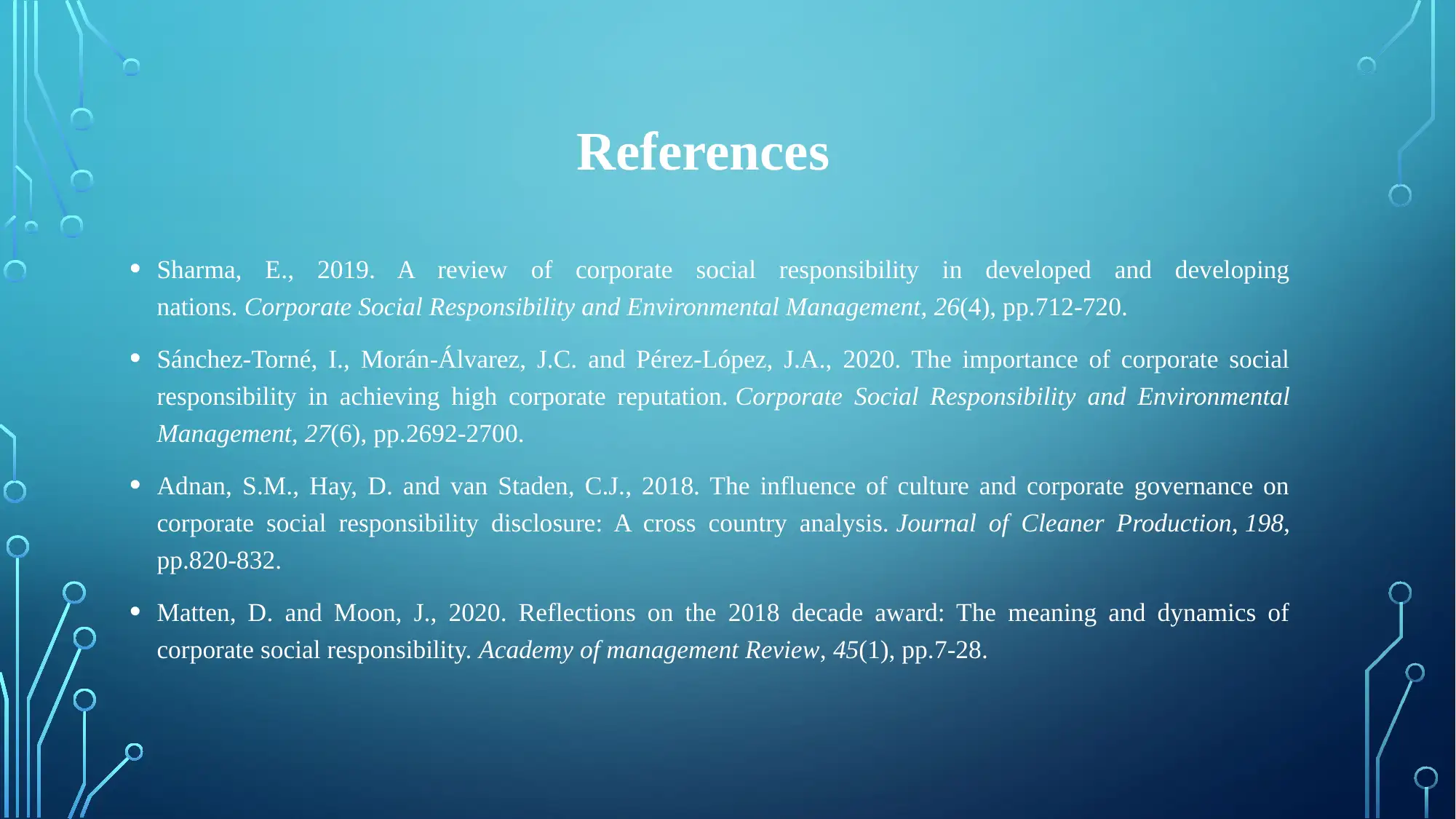CSR Practices: Balancing Profitability and Social Responsibility
VerifiedAdded on 2023/06/10
|4
|362
|330
Essay
AI Summary
This essay discusses the challenges organizations face in adopting Corporate Social Responsibility (CSR) practices while maintaining profitability. It highlights that while many organizations engage in CSR activities like reducing carbon emissions and promoting charity to improve their public image, the inherent conflict between profit-driven operations and comprehensive CSR implementation remains a significant hurdle. The essay references academic sources to support the argument that complete adherence to CSR principles can be difficult for businesses primarily focused on maximizing profits, especially considering the carbon emissions associated with manufacturing and energy consumption.
1 out of 4









![[object Object]](/_next/static/media/star-bottom.7253800d.svg)